Amidst today’s business rush, one key question emerges- How can you provide standout client experiences that outshine your competition?
Customers now have higher standards than ever. They expect individualized service and smooth journeys.
Businesses embrace customer relationship management (CRM) as a transformative response to this unrest. This allows them to reshape customer experiences and build lasting relationships.
In this article, we delve into the impact that CRM can have on your customer experience and various tips to maximize its potential.

What Is CRM?
CRM, or Customer Relationship Management, is a business strategy that effectively nurtures and manages client relationships. It involves a well-defined approach and a range of technologies aimed at enhancing client interactions and overall experiences.
Read More: What Is CRM- Uncovering the Basics & Benefits
Importance of CRM Software
1. Organizing Customer Data
CRM is a centralized database. It gathers and organizes client data from different sources, encompassing sales, marketing, and customer support. This data provides insights into consumer preferences, purchasing patterns, communication, and demographics.
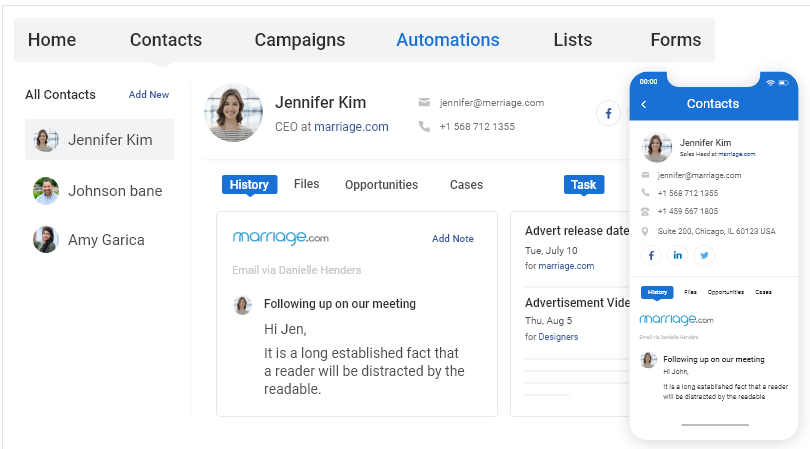
2. Segmenting Customers
CRM systems simplify customer grouping. They categorize customers based on factors like demographics, behavior, or buying habits. Customer segmentation enables specialized interactions and customized marketing strategies.
3. Facilitating Seamless Communication
CRM solutions provide resources and avenues for constant client communication.
They efficiently track and manage customer inquiries, requests, and feedback. Moreover, they integrate with email, phone systems, social media, and other communication channels, enabling you to manage all communications from a single platform.
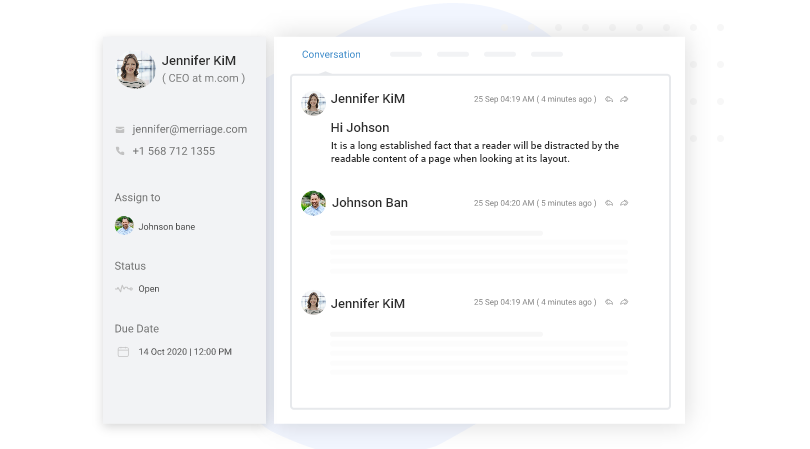
4. Automate Business Processes
Incorporate CRM for startups to automate routine tasks such as data entry, appointment scheduling, reminders, and email sequences. This frees you to concentrate on forming strong connections and providing personalized experiences.
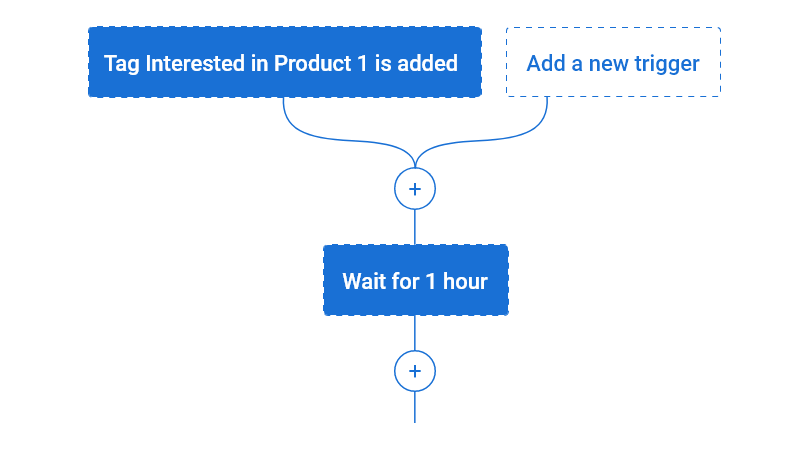
5. Drive Customer-Centric Strategies
CRM speeds up customer-centric strategies. You gain deeper insights into customer preferences, issues, and needs by analyzing data and insights from CRM. This helps you offer tailored products, personalized recommendations, and targeted marketing efforts.
How does CRM Benefit Customer Experience?
CRM greatly impacts the customer experience and offers organizations numerous important advantages that boost long-term profitability. Here are the key benefits of CRM:
1. Enhanced Customer Satisfaction and Loyalty
You can provide individualized experiences that speak to each consumer individually, thanks to CRM. Adapt their interactions, recommendations, and offers by utilizing customer data and insights to fit particular client preferences.
Increased customer happiness, loyalty, and the chance of repeat business are all benefits of this level of personalization.
2. Better Customer Retention and Reduced Churn
Proactively anticipate and meet client needs thanks to CRM. It helps you detect possible trouble spots or places for improvement by utilizing consumer data and insights.
This proactive customer care and relationship management method improves long-term customer loyalty, lowers churn, and enhances customer retention rates.
3. Greater Brand Advocacy and Customer Engagement
CRM fosters more fervent brand supporters by increasing consumer involvement. You may create memorable moments that resonate with customers by offering extraordinary experiences and tailored connections.
On average, customers share their positive brand experiences with around nine people.
Customers who are happy with their purchases are more likely to tell others about their positive experiences, acting as brand ambassadors and generating referral business in the process.
4. Opportunities for Targeted Marketing
CRM systems give firms useful customer insights that support focused marketing campaigns. You may create customized marketing campaigns that appeal to particular customer segments by analyzing individual preferences, purchase histories, and behavior.
Personalize your client interactions by sending pertinent and targeted messaging, recommendations, and offers using the intelligence gathered via CRM.
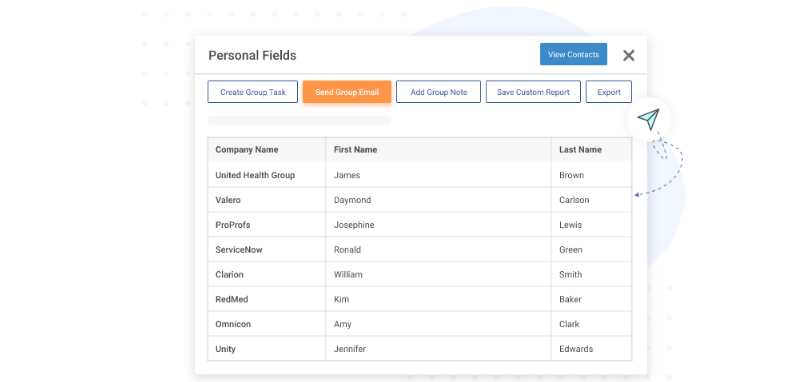
5. Efficient Resolution of Customer Issues
CRM solutions make it possible to resolve client concerns and complaints quickly.
You can instantly access pertinent information to address customer questions, concerns, and issues by centralizing client data and interactions. This allows you to foster a long-term relationship with customers and positions your business as an industry leader.
6. Multi-Channel Consistency
The capacity of CRM to guarantee consistent and seamless experiences across numerous channels is one of its main advantages.
You can provide a consistent experience regardless of whether customers interact through social media, email, phone, or in-person contacts by integrating customer data and interactions from many touchpoints.
How to Successfully Implement CRM for Better Customer Experience
To ensure you can effectively use CRM to improve customer experiences, rigorous planning, and execution are required when implementing CRM systems. The following are crucial factors and actions for a successful CRM implementation:
1. Define Objectives
Clearly state the purpose and aim of your CRM implementation. Establish the precise results and enhancements in customer experiences you want to achieve, such as higher customer satisfaction, faster response times, or more individualized interactions.
To ensure that CRM deployment meets the organization’s vision, align these goals with the overall company growth plan.
2. Assess Current Processes & Data
Analyze current systems, data management procedures, and customer-facing operations. Determine weak points, inefficiencies, and potential areas for development.
This evaluation will aid in determining how CRM might improve customer insights, centralize data, and streamline operations. It is essential to comprehend the current situation in order to design CRM deployment thoroughly and successfully.
3. Select the Right CRM System
The demands, goals, and budget of your firm should all be taken into consideration when choosing a CRM solution.
Think about scalability, usability, integration potential, and customization possibilities. To make sure the CRM solution you choose supports your customer experience objectives successfully, compare several suppliers and their offerings.
Read More: How to Choose a CRM (Step-by-Step Checklist + Free Guide)
4. Plan Data Migration & Integration
Create a well-planned data migration strategy to guarantee a seamless switch from current systems to the CRM solution. Choose the data that has to be migrated, clean it up, put it in order, and set up procedures for continuing data management.
To develop a comprehensive picture of client interactions, plan for the seamless integration of CRM with other company systems, such as marketing automation or customer support solutions.
5. Customize & Configure CRM
Adapt the CRM solution to your organization’s unique requirements. Set up the system so that it is in line with your desired customer experience goals and workflows.
You can alter data fields, processes, dashboards, and CRM reports to make sure the system satisfies your particular needs. Utilize CRM’s customizability features to improve user experience and streamline processes.
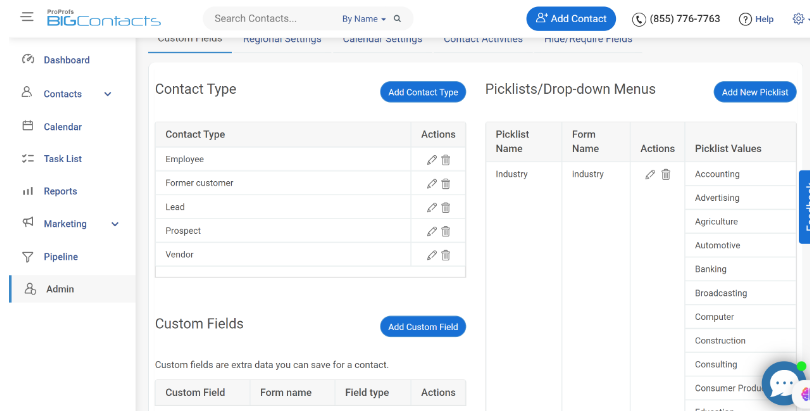
6. Apply Data Security Measures
Security and privacy of customer data are essential.
Put in place strong safeguards to protect client data within the CRM system, making sure to adhere to any applicable data protection laws. To protect client information and uphold confidence, implement access limits, encryption standards, and regular data backups.
Read More: CRM Data Security: Best Practices to Save Your Data From Cyber Threats
7. Assess Performance
Regularly monitor the effectiveness of CRM and its effects on the customer experience. Check your key performance indicators (KPIs), which include metrics for client happiness, response times, retention rates, and revenue growth.
To achieve the best results for the customer experience, regularly evaluate the efficacy of CRM procedures, pinpoint areas for development, and make appropriate improvements.
8. Foster Continuous Improvement
CRM deployment is a continuous process rather than a one-time project. Ask for feedback from both consumers and employees frequently to find areas that might be improved.
Improve your understanding of consumer behavior and preferences by utilizing CRM analytics and customer insights. Utilize this data to improve strategy, further tailor interactions, and continuously enhance the client experience.
Careful planning, successful change management, and continual optimization efforts are necessary for a successful CRM installation.
By taking these actions, organizations can make the most of CRM to improve customer experiences, create strong connections, and gain an advantage in today’s customer-centric environment.
CRM Best Practices- 6 Ways to Make the Most Out of it
While CRM has enormous potential to improve customer experience, firms must overcome several obstacles and follow best practices to realize its benefits fully. In order to overcome challenges and ensure a successful CRM installation, keep the following points in mind:
1. Data Privacy & Security
When deploying CRM, data security and privacy considerations should come first. Businesses must put in place reliable safeguards to protect consumer data and adhere to pertinent data protection laws like the GDPR or CCPA.
To protect sensitive information, use encryption technologies, user access controls, and frequent data backups. Transparently explain your data privacy policies to clients to foster confidence and obtain their permission to use their data.
2. Employee Training & Adoption
Implementation success depends on efficient employee training and CRM system uptake.
Offer thorough training to enable your staff to use CRM systems efficiently. To help people become familiar with the features and advantages of the system, provide hands-on training sessions, workshops, and resources.
3. Integration with Business Systems
Better decision-making is made possible by integrating CRM with other business systems, which provides a comprehensive perspective of the client.
Establish seamless connectivity with current systems, such as the best workforce management tools, e-commerce platforms, or marketing automation solutions.
Through data exchange made possible by this connection, employees now have access to a thorough understanding of each customer across all touchpoints, ensuring a consistent customer experience.
4. Routine Evaluation & Optimization
CRM tactics must be regularly assessed and improved if they are to be continuously improved and flexible. Keep track of key performance indicators (KPIs) like revenue growth, client retention rates, and satisfaction levels by generating detailed reports.
Examine CRM data to find trends, patterns, and opportunities for development. Ask for feedback from clients and staff to learn about their interactions with the CRM system. Utilize this information to improve workflows, processes, and personalization initiatives.
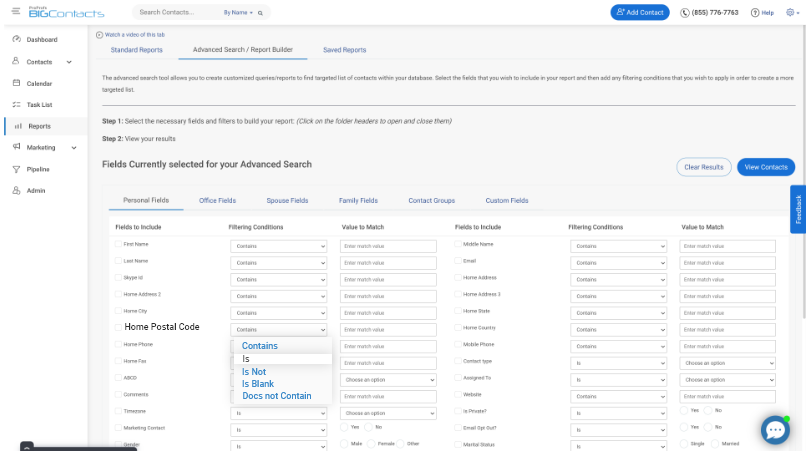
5. Change Management
CRM deployment requires careful change management. By explaining the advantages and goals of the system, you can help employees prepare for the changes brought on by using CRM.
Involve your staff in decisions and highlight how CRM benefits their work and customer experience. This approach helps you overcome resistance to change. Foster a cooperative and helpful environment that promotes adopting and using CRM tools and procedures.
6. Vendor Support & Collaboration
During the deployment process, working with CRM suppliers can provide insightful advice. Utilize the knowledge of the vendor’s support staff to resolve technical issues, set up the system, and enhance its features.
Keep in regular contact with the vendor to learn about new features, enhancements, and best practices for CRM. This teamwork approach guarantees a seamless and effective implementation.
Leverage CRM’s Potential to Enhance Customer Experience
CRM continues to be an essential investment that gives organizations a competitive edge as they work to satisfy changing customer expectations. CRM will continue to develop in the future, influencing the customer experience and highlighting the significance of being customer-centric in business initiatives.
Businesses may strengthen relationships, encourage loyalty, and advance their success in the dynamic world of customer experience by adopting CRM.
Experience the power of CRM by investing in a powerful solution like BIGContacts by ProProfs and transform your business relationships. To witness how an effective and customized approach to contact management might accelerate your growth, sign up today.
FREE. All Features. FOREVER!
Try our Forever FREE account with all premium features!







